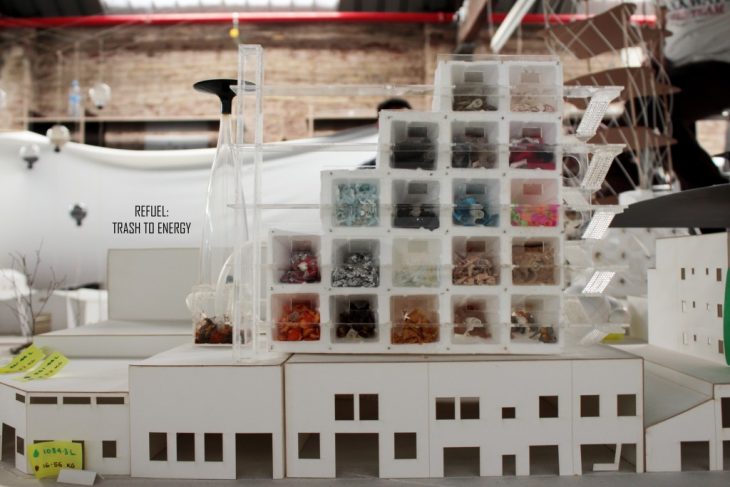
Refuel
Man is the most intrusive of all creatures on earth. In the name of our comforts and luxuries, we have ever-increasingly drained resources from nature. Over time these demands have continued to grow at an exponential rate while the longevity of the products designed with these valuable resources proportionately decreased, leading to today’s consumerist attitude of use-and-throw products that contribute to frightful amounts of waste. Most of these discarded products end up in incinerators, landfills or water bodies where the value of the materials is lost forever while simultaneously corrupting the quality of the soil, air or water.
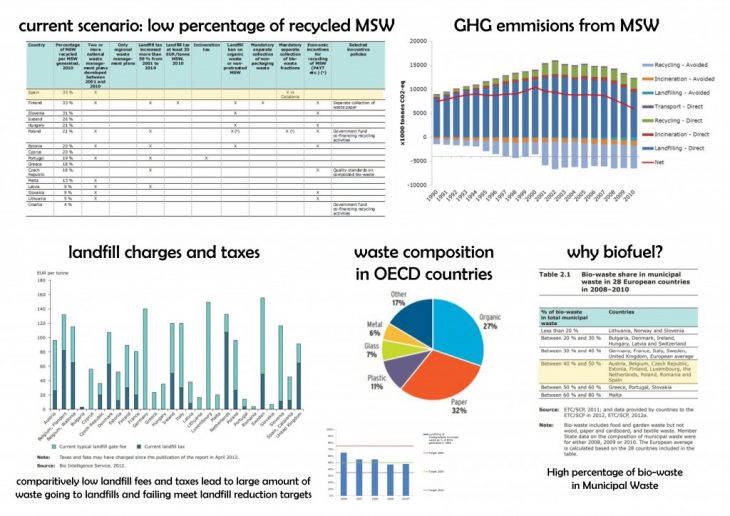
FAQs on waste and recycling in Spain
As stated in Cradle to Cradle, “Nature doesn’t have a design problem, people do.”
The idea therefore should be to design products so as to “eliminate the concept of waste – not reduce, minimise, or avoid waste, but eliminate the very concept.”
‘Refuel‘ is a project aiming to redefine our concept of waste. On one hand, inevitable waste products like organic biomass is viewed as a source of energy. Biomass collected from the community is used to produce Biofuel using anaerobic digesters which in turn can be used by the community for a variety of utilities like cooking, space heating, even fuel for small to medium vehicles. This is a continuous cycle that allows us to view what was perceived as “trash” as fuel. Considering our site in Poble Nou, this amounts to roughly 360 kg of organic waste in a day, meaning a potential of 162 cubic meter of Biofuel a day.
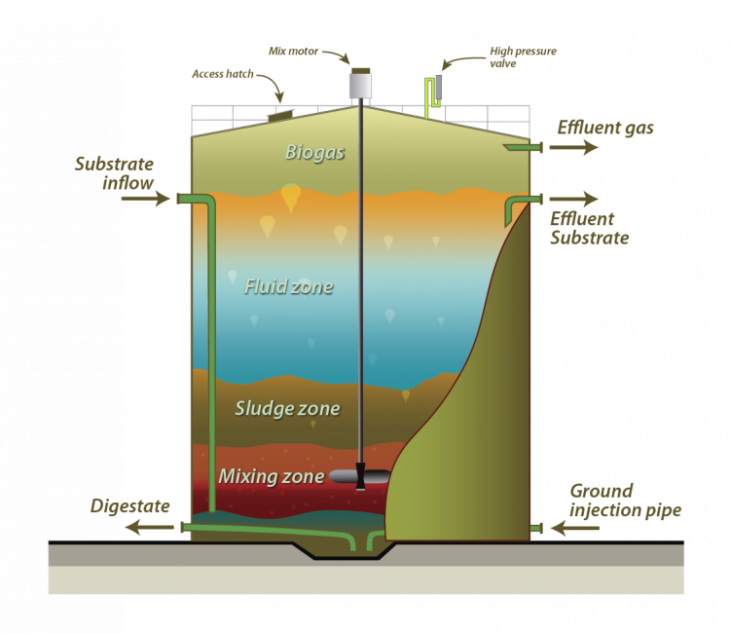
Biomass to Biofuel
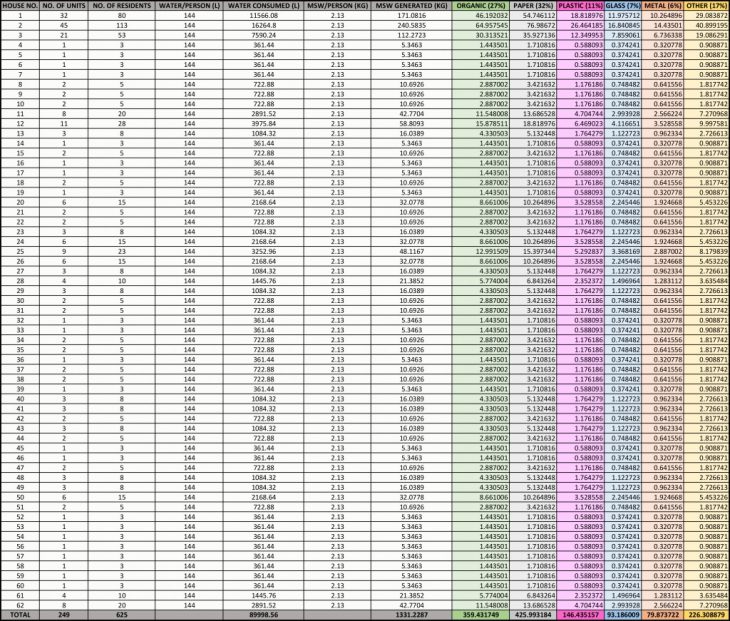
Site Population & Waste Composition
The project also aims to segregate domestic trash into categories based on materials, not just organic and inorganic, so as to enable upcycling of like materials in the trash rather than forcing a recycled utility on a mix of materials which often involves the introduction of more chemicals and toxins/emissions.
“Just because a material is recycled does not automatically make it ecologically benign, especially if it was not designed specifically for recycling. Blindly adopting superficial environmental approaches without fully understanding their effects can be no better – and perhaps even worse – than doing nothing.”
However, at the core, this project is not about upcycling or recycling. As part of the proposed educational institute, it’s principal aim is social awareness and activism. The Refuel Structures are transparent buildings containing solely trash. It aims to show the community just how much resources they consume and how much materials they dispose off in regular intervals and to educate them on ways to reduce this waste or efficiently upcycle this trash to new products or energy. The principal aim of this project is to act as a catalyst for consciousness – the idea is that being forced to view the volumes of unnecessary trash we accumulate will make us question our very lifestyles, that people will make efforts to reduce their consumption and corporations will be forced to reconsider the materials they use for their packaging or harmful toxins and dioxins in their industrial processes.
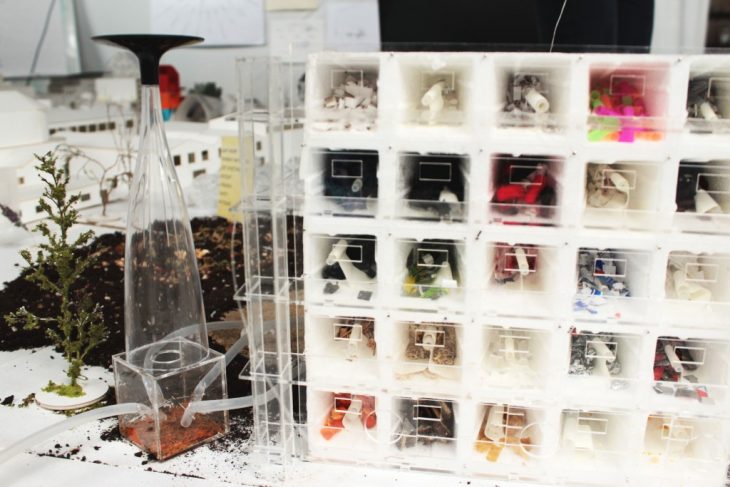
“Refuel” is a project by Mohor Bose as part of the Self Sufficient Buildings Research Studio, MAA01 2017-2018.
Tutors: Enric Ruiz-Geli, Mireia Luzzaraga
Assistants: Zrinka Radic, Mohamad Rachid Jalloul